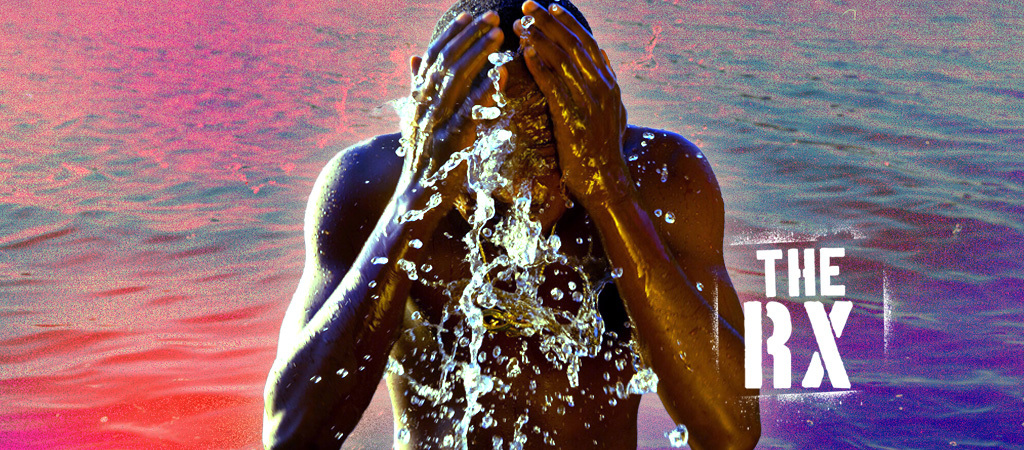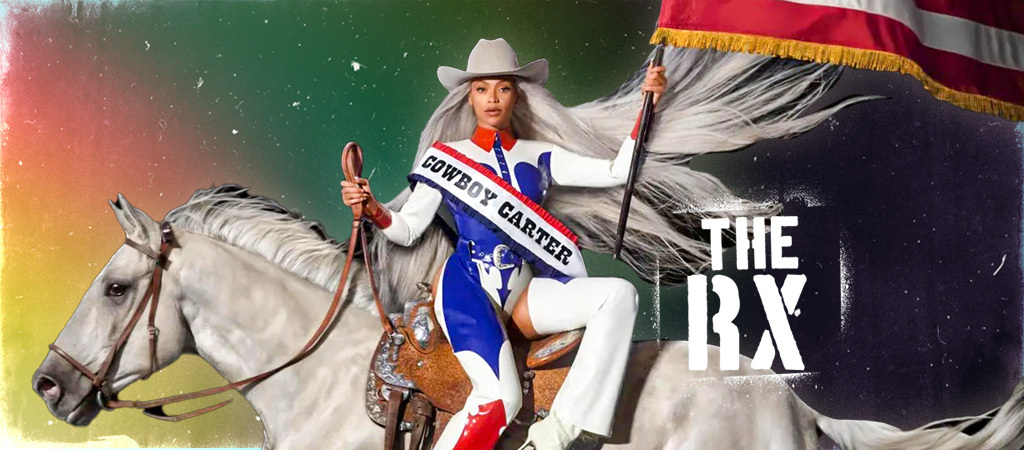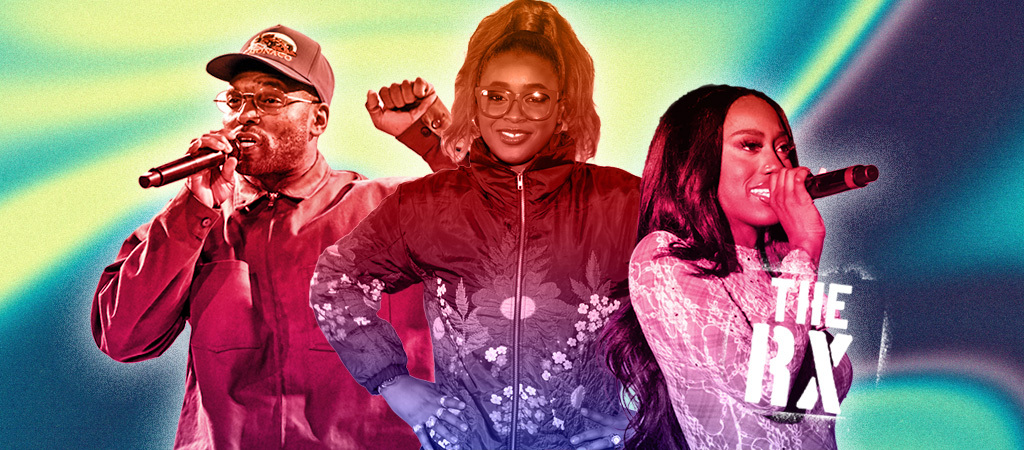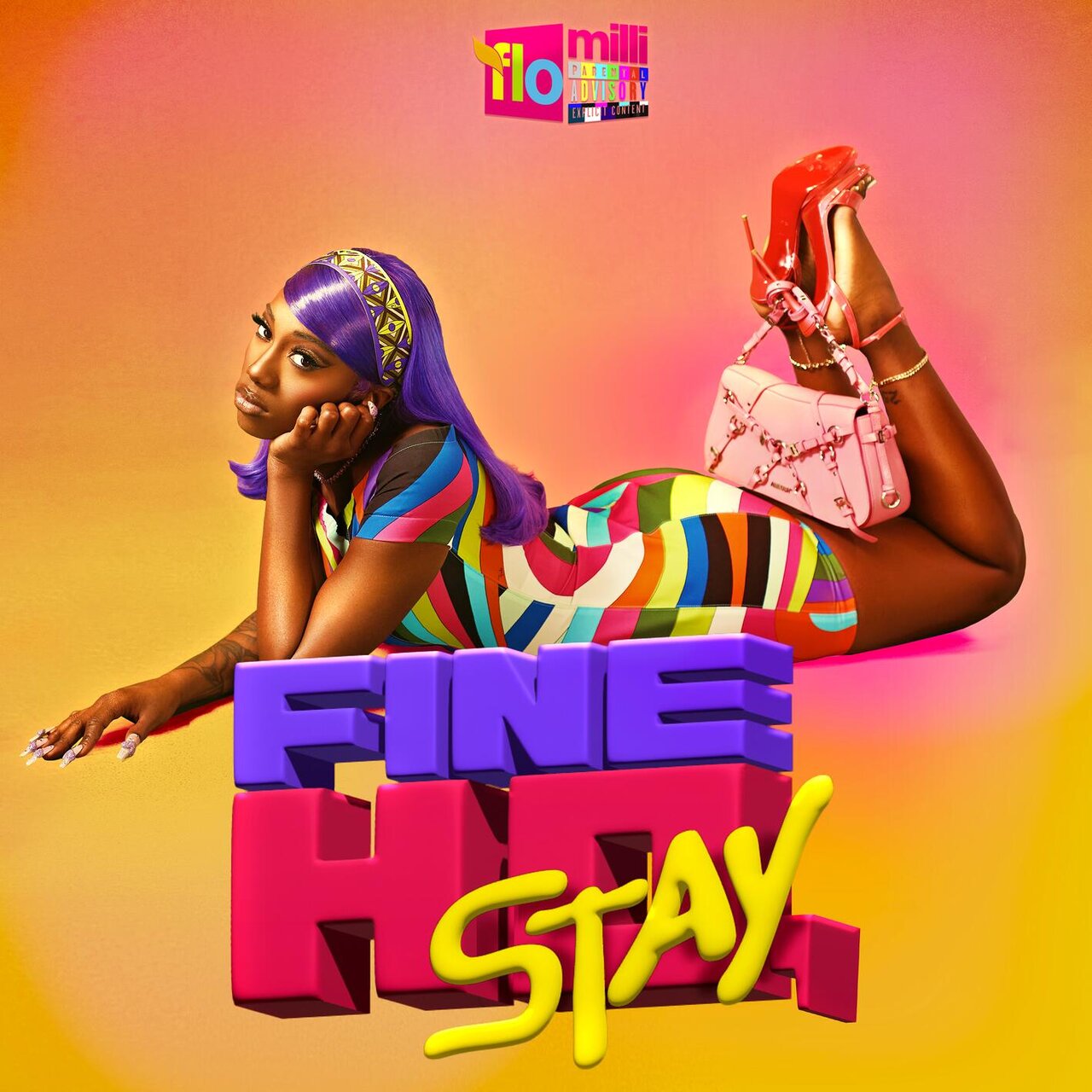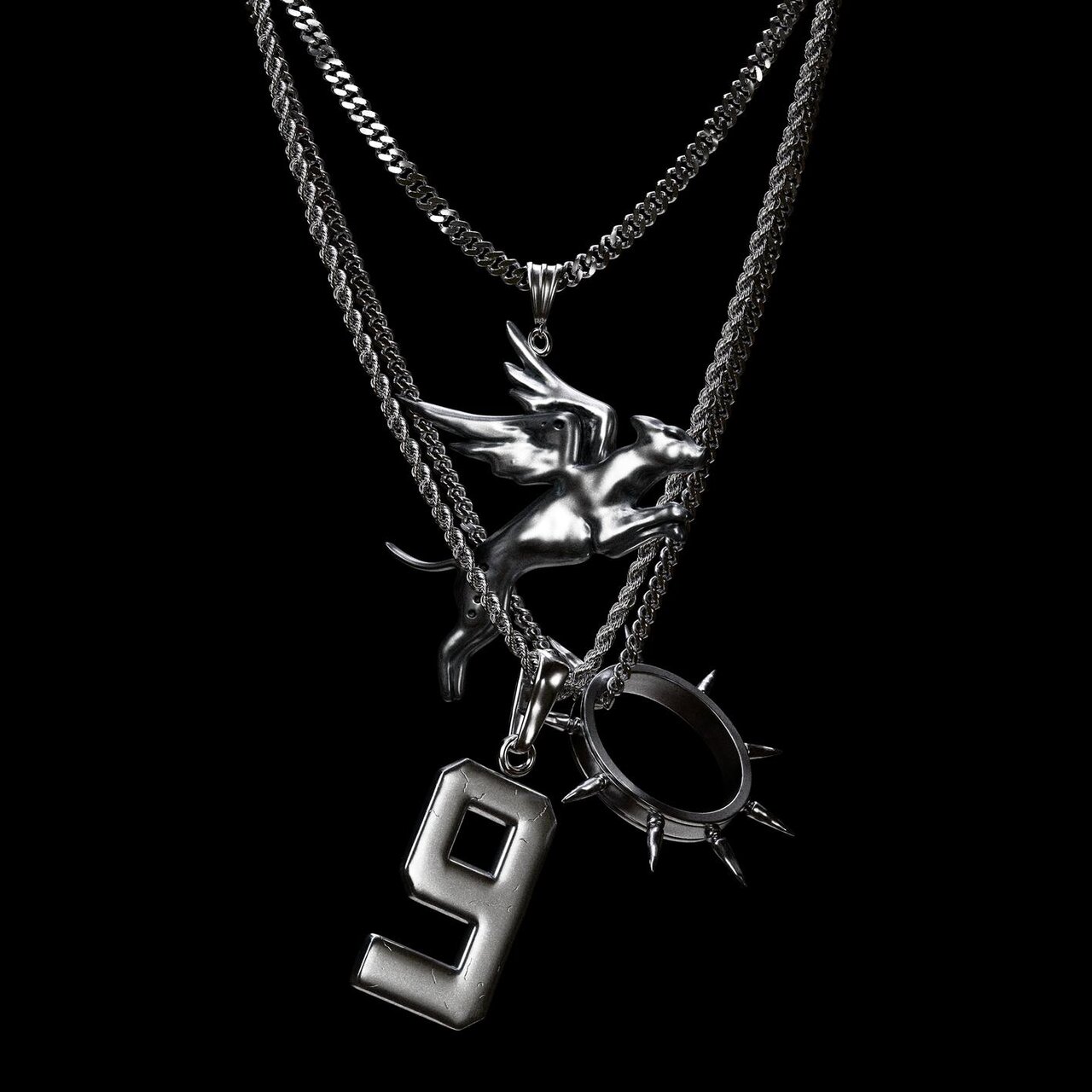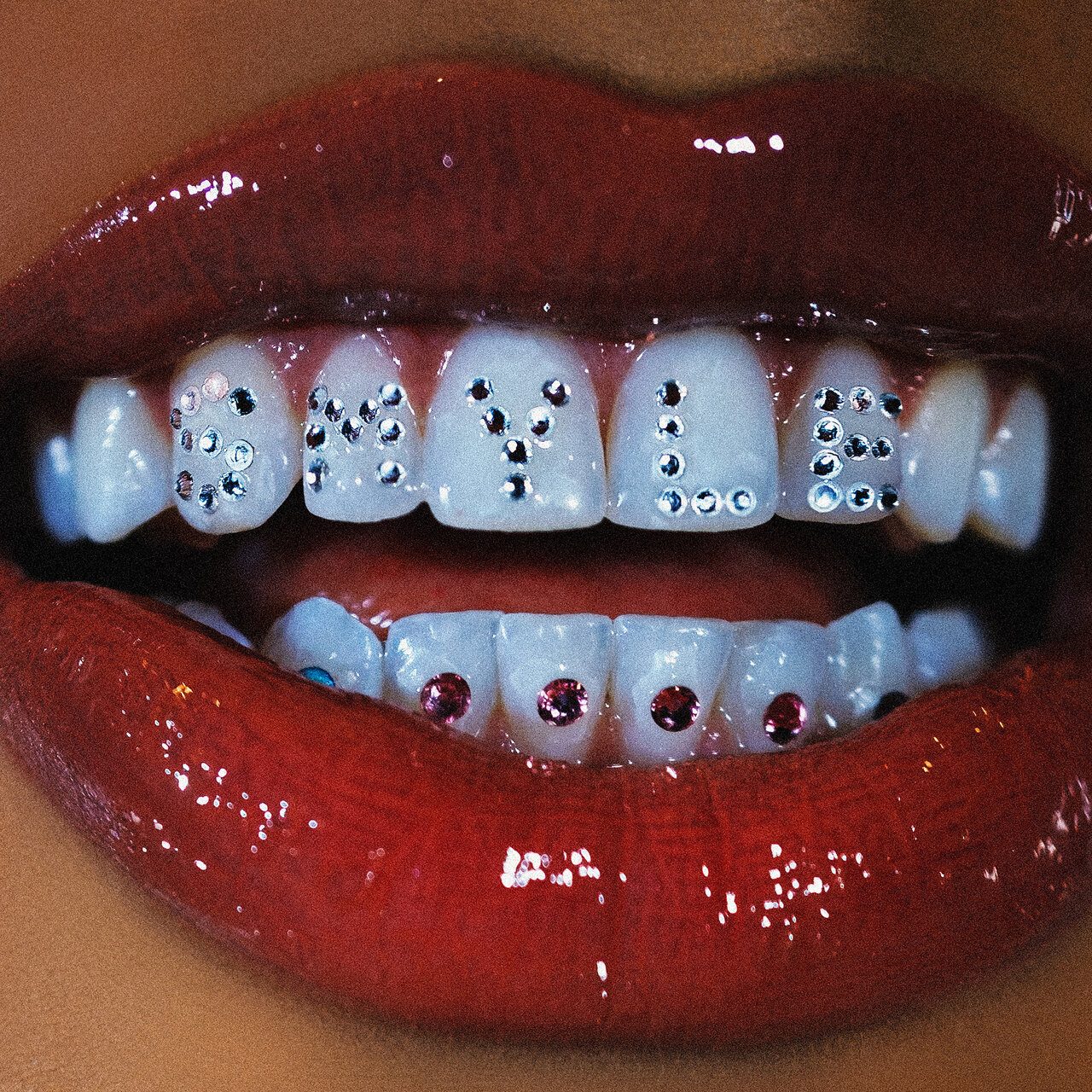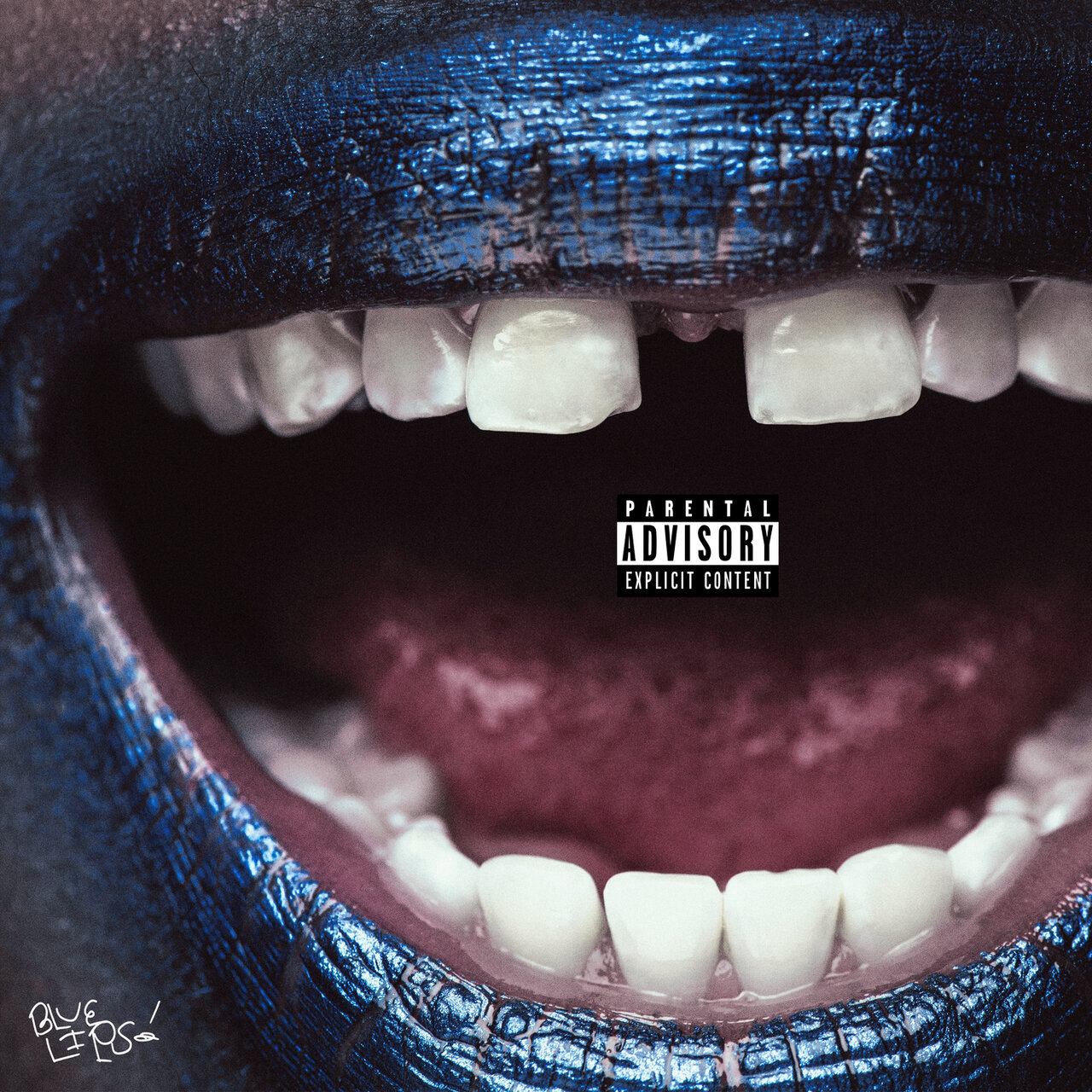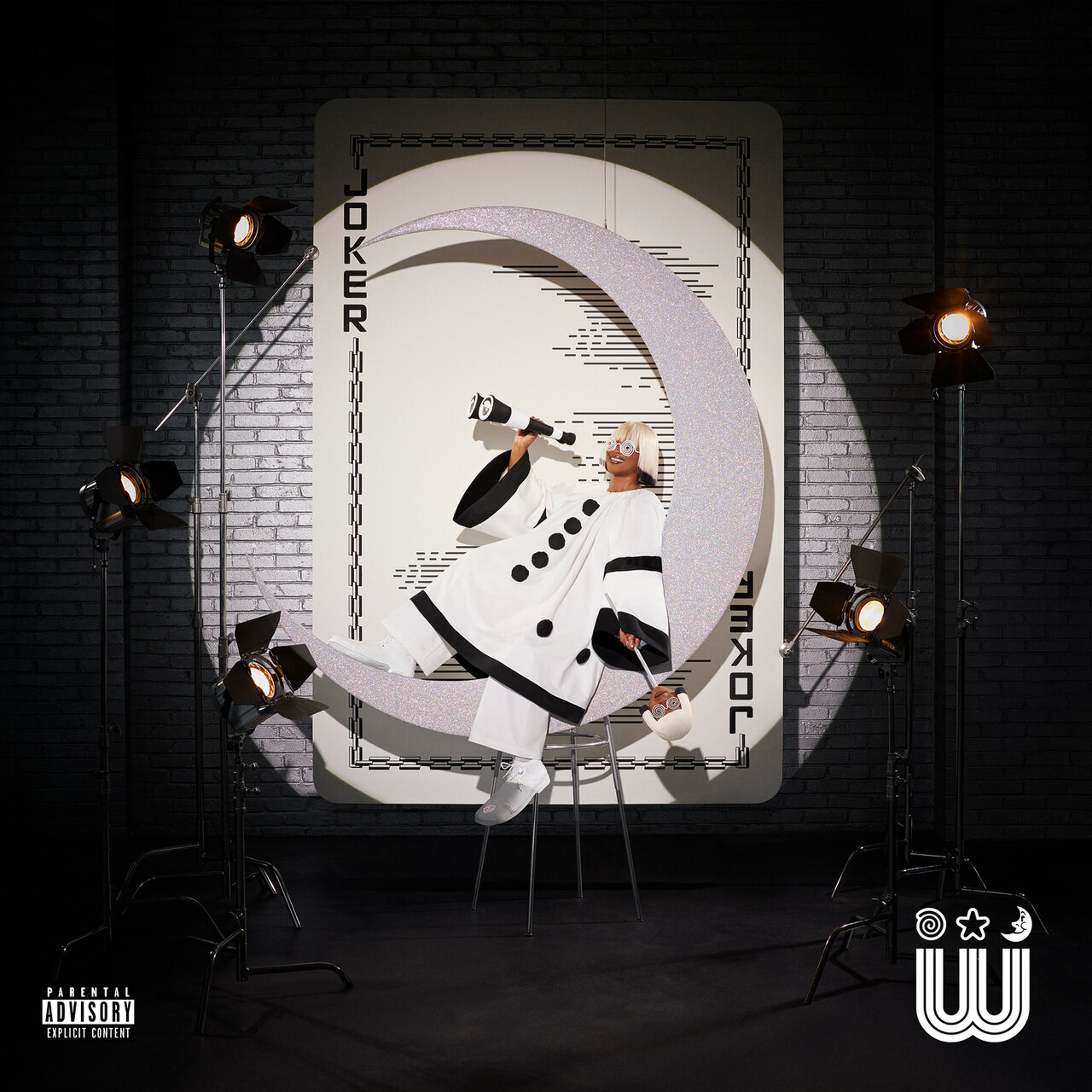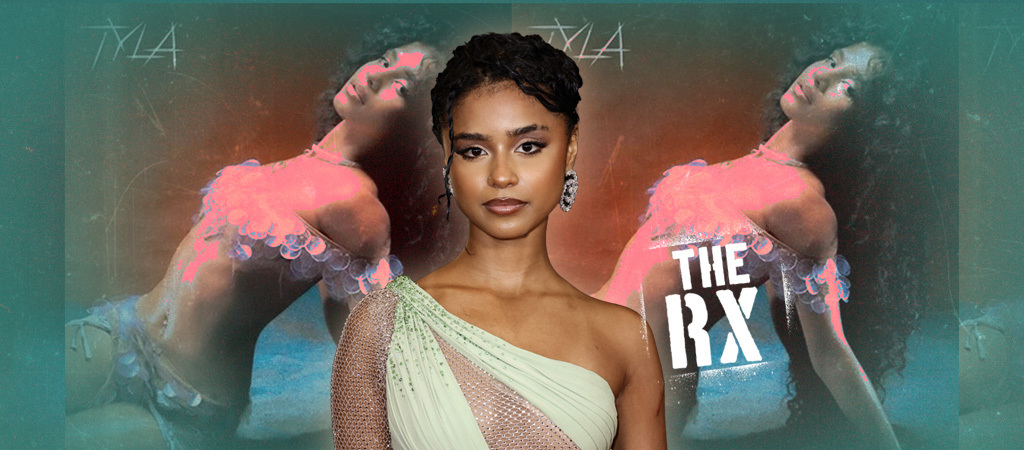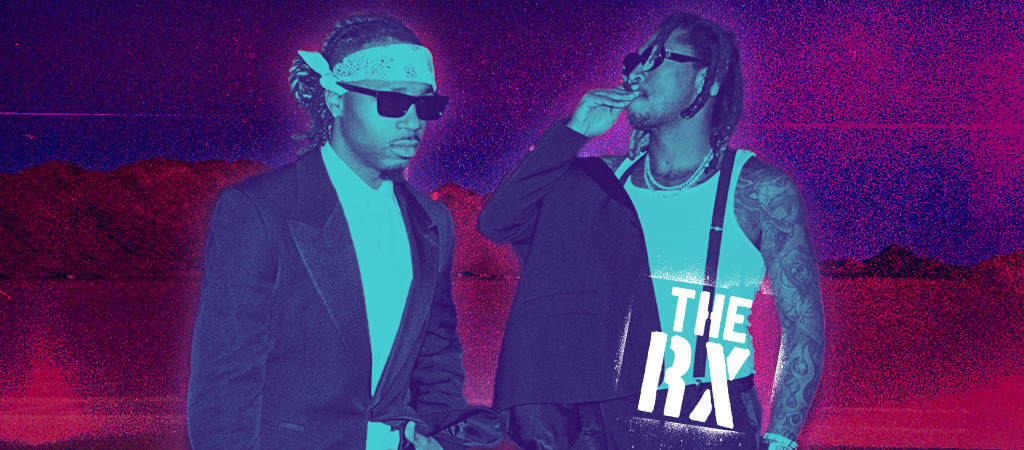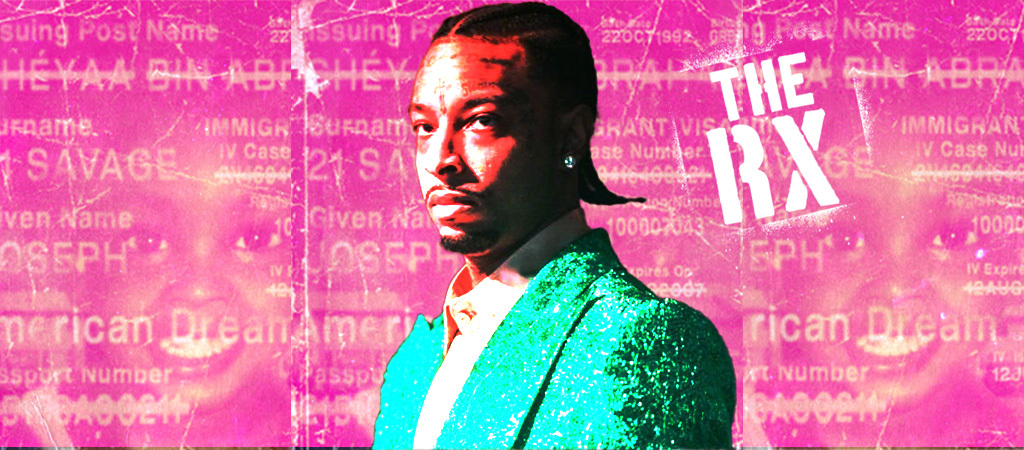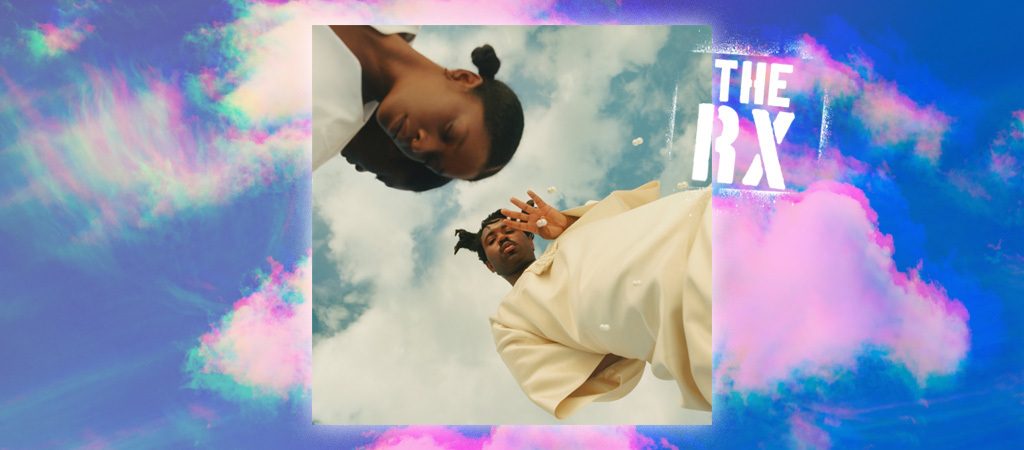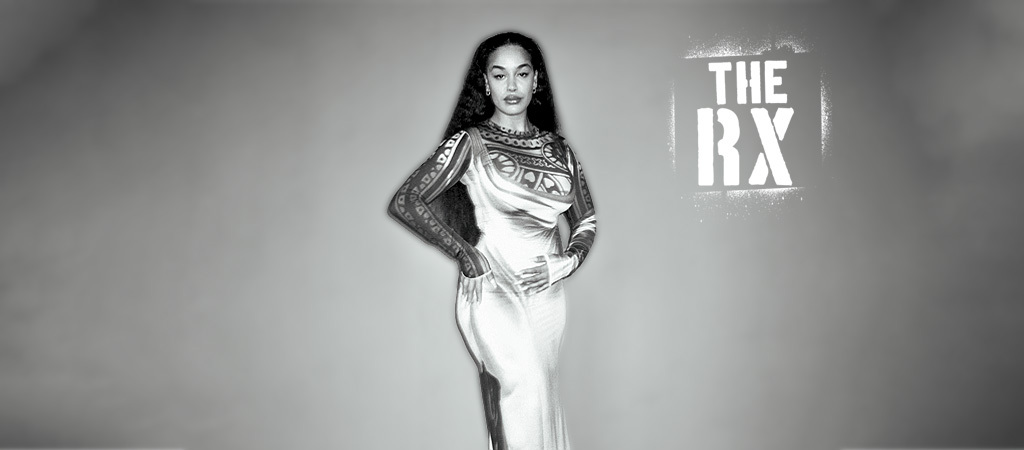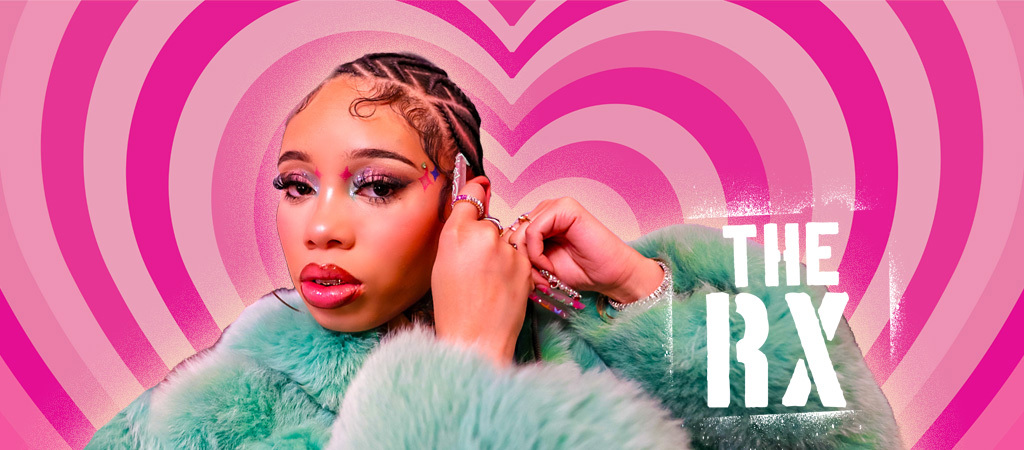
The RX is Uproxx Music’s stamp of approval for the best albums, songs, and music stories throughout the year. Inclusion in this category is the highest distinction we can bestow, and signals the most important music being released throughout the year. The RX is the music you need, right now.
Things changed very quickly for Anycia. In a matter of months, the Atlanta blossomed into the class of hip-hop’s next it-girls. It began towards the end of last with the release of “BRB,” a record that closes both her 2023 EP Extra and her newly-released debut album Princess Pop That, and elevated when she collaborated with Latto for “Back Outside.” Though Anycia admits that the newfound fame is overwhelming (“Chile, it’s overwhelming right now.”), she also knows that the stress is worth it.
“When I was working regular jobs, I was overwhelmed, and it wasn’t a good overwhelmed, so I like this overwhelming.” she tells me. Furthermore, she believes that being overwhelmed is a product of trying to elevate your life. “You always gonna be overwhelmed when you’re doing some sh*t, when you’re trying to get your life right,” she adds. “If you’re not overwhelmed or feel like there’s more to be done, then b*tch, you not doing nothing.”
Princess Pop That presents Anycia as both spoiled and feisty. Through 14 songs that clock in at just under a half-hour, Anycia enforces her rule over men and spiteful women with a playful authority that emphasizes the duality that exists in her artistry as much as it does in the album title. It’s a short, sweet, and concise that gets the job and leaves you wanting more, just as a debut album should do.
Together with the album’s release, Anycia took a moment to speak with Uproxx about the album, receiving princess treatment, her craziest experience with a man, and what she hopes her career brings her in the future.
“I don’t want to lose sight of my goals and I don’t want to be a parent that was like, ‘I used to do this,’” she notes. I don’t want to be no-used-to-be ass female like, ‘I used to be back in the day. I used to be running around with all them!’ No, we there. We in the moment.”
What’s your definition of a princess and how does it factor into the foundation of this album from the lyrics to production and the skits?
I grew up in a house [where] I’m the only girl out of all boys, and I’m the firstborn, so like I’ve always been literally the princess. My room was pink, I’m spoiled, I’m everybody’s favorite, so I’ve always been a princess. The “pop that” comes in hand because most b*tches that call themselves princesses try to be “tea party, chip chip cheerio.” No, it’s Princess Pop That because I’m still a princess, really a queen, I do as I please. I don’t touch a door, if I got some heavy bags, I don’t give a damn what man is right there, pick it up! It’s my world and everybody else is just living in it.
A princess is somebody who exudes confidence in any room that they’re in. A princess dominates every room that they’re in, even if they’re nervous, they’re able to defeat that feeling and demand the room. You just demand everything, in a nice way, in a princess way, in a cute way, [and] not in a b*tchy way. You’re that girl, everybody knows you’re that girl, you don’t have to say too much to be the girl. Think about when a queen or a princess walk through the room, they want everybody to shut the f*ck up.Except this princess be popping it. So I might slide through and [say], “Play that Sexyy Red!” You ain’t gotta be quiet, I want everybody to turn up.
I like the message on the “Poppin It Interlude,” because I think for a lot artists the message would’ve been “don’t cry over these n****s/don’t cry over no girl.” For you it’s, “I be sliding down the wall too hoe. But get you some motherf*cking money while you doing it.” What experiences for you influenced this message and being able to tell it this way?
My main goal with all of this is to be as transparent and personable as possible. I feel like nowadays, there are a lot of unrealistic expectations with our generation. I’m 26, I’m about to be 27 this year. I will be sitting here for days if I told you everything that I done been through. I feel like personally, with my music, with everything I do, when I talk, [and] when I do interviews and stuff, I have to stop myself sometimes. That’s why I commend Sexyy Red so much because I feel like she says a lot of things that [most] girls wouldn’t. Girls wouldn’t have been comfortable running around saying, “My coochie pink my booty-hole brown.” She exudes confidence, she doesn’t care, [and] she dominates. She puts it out there, and it makes the girls feel like, “Oh, maybe this is okay.”
I literally want to have that same feeling. When I said, “You can slide down the wall, just be that b*tch sliding down the wall,” I mean that because realistically, y’all could sit here and act like, “Oh, F that n****, we were going outside, we turnt up.” Girl, you know you hurting and it’s okay. It’s just not glorified to be an emotional creature, but emotions are real at the end of the day. Just make sure that when you’re emotional, you have that balance, and you’re able to snap back from it. Don’t ever be just sliding down the wall and just stay on the floor. You can side down on the wall, just make sure your nails are done, you got some money in your purse, [and] your car is filled up with gas. Cry and go pay the bills. Cry in the car with some Dior shades on baby, get it together. I just want everybody to know that it’s normal to be normal, but you can still be that b*tch and be normal and have emotions and feelings.
Between “Back Outside” and “Nene’s Prayers,” there are moments on this album that come from men really having you f*cked up. What was the worst situation with a guy that really had you ready to pop off like you never did before?
When I was 17-18 I had this boyfriend, and no shade to the boys who’re struggling a little bit or whatever, no shade. I was 17-18, we got a little job or whatever. My birthday rolled around and I told him that we don’t gotta do much cause I already know our situation. But baby, in Atlanta it was the middle of summer. My birthday is in in August. It feels like the devil’s asshole out here. You even been to Atlanta when it’s hot? You’ll be gleaming like a glazed doughnut that came up out of Krispy Kreme.
We up in the car everywhere, truth story I’m about to dropped dead, we had no air up in his car. He smoked black and milds too and one of the windows in the front broke, so he basically hotboxing this b*tch [and] it’s 4000 degrees outside. He driving around Atlanta talking about, “I gotta cash this check. I gotta cash this check.”. We done drove to like 80 different stores. Mind you, I never saw the check the whole car ride. Why we get to the place where you cash the check and its an $11 check? $11. When I tell you I was mad? I was so upset, I was mad, I was losing my damn mind [and] then, not to mention, he had the nerve to cheat on me!
What is the one message or piece of advice that you kept in mind as you created this project and why was it so important to you?
One of my friends told me, cause I’ve been going through a lot of friend stuff as far as, you know, the normal sh*t, so I lost a lot of friends in this process. But I was told that everybody’s on the same highway, but everybody gets off on different exits. That stuck me because, it’s true, we on the ride together, but now I’m getting off on this exit and you getting off that exit. It don’t necessarily mean like bad blood or nothing, but when we drive past each other again, we drive past each other again. Right now, I’m on my exit [and] we don’t live on the same exit so, I’ll see you in traffic.
If you could have a day where it’s just princess treatment from morning to night, what would that day look like?
I wake up in the morning, 17 blunts rolled to perfection exactly how I like it, right there all ready to go. Face things in order on my desk ready for everything. Toothpaste on my toothbrush, everything that I need for the morning is already set. Showered running, clothes picked out exactly to perfection. When I get up, my man is doing [all] this himself, he’s slaving trying to do this.
When I get out the shower, he need to already be downstairs at the front door opening the door for me to put my shoes on and everything. Then he need to take his ass out by the car, he need to open up that door, and he needs to start my car. Prior to doing all this, he needs to wake up early because he needs to take my car to fill it up with gas and vacuum it out because I was smoking the day before. Then he needs to have my car ready with everything put into my car. Then, he gives me $50,000 to go shopping and then I have nothing to do.
My phone is on Do Not Disturb. I don’t have much to do, this is a free day. I just made some money, something drops in my account because it’s something that I did, or I get the opportunity of a lifetime on the phone, nobody will be able to contact me to tell me nothing. The sun is out, I got on something that show my ass perfectly, [and] I look good. Hair is done, nails are done, and lashes are to a tee — everything is good. Then we’ll go get something real nice to eat. A nice big steak [and] loaded baked potato type of time, then a little surf & turf. We leave there and smoke two blunts. Then, we go home, we lay up in the bed, and we watch whatever we want to watch — crime documentaries, the worst gory movie you could possibly think of. My man already up in the bed and his… is out and we…. and then we go to bed.
What do you hope Princess Pop That does for your artistry and the career you want to build going forward?
Honestly, I’m just an open book. I’m doing a lot content wise. I’m never gonna stop putting out songs. I’m never gonna stop my consistency with music. I plan on dipping and diving in all different elements of myself and adapting to other people’s environments, and still being able to be myself and show everybody that I can still be myself. Showing different styles and just enjoying my woman experience. I’m really more so happy to see the impact that it makes. Of course, I’m excited about the money too, but I’m superduper excited about the impact that I make and building my platform so that I can use it in the correct ways. I’m excited about the future as a whole.
Princess Pop That is out now via United Masters LLC. Find out more information here.

